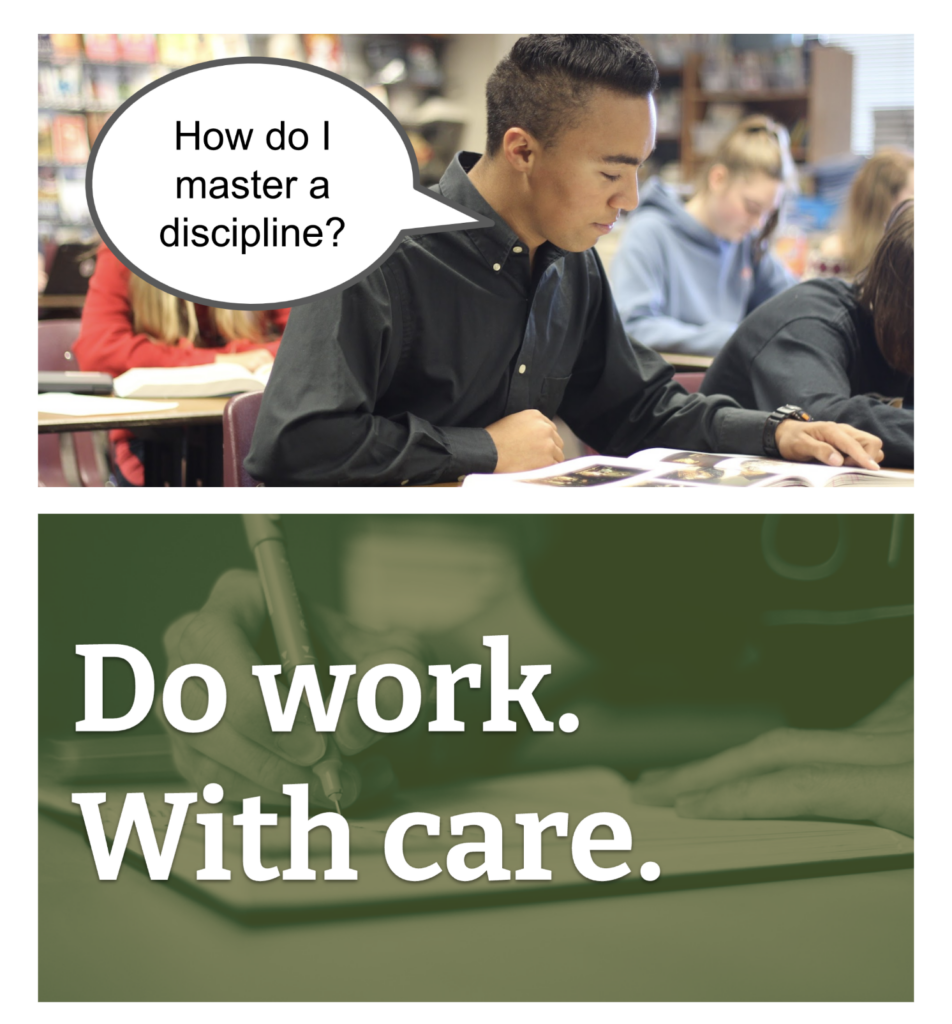A truth that keeps me teaching sounds a bit paradoxical. It has two propositions:
- First, you are not the center of your students' lives, nor should you be.
- Second, you are very important to the long-term flourishing of your students.
It has other forms, too — like this:
- First, you cannot make your students master anything.
- Second, you are the most powerful influence your students have this year when it comes to mastering your subject.
Holding these two ideas in your will and your mind at the same time — your impotence and your power — is a hard holding to learn. But few dualities have left me as liberated as these.
The other day, I was speaking with a group of colleagues in Indiana, and we were having a lovely time thinking about student motivation and The Will to Learn. About thirty minutes or so into the workshop, I put up a pair of slides (below) and told the group something a bit provocative.

I said,
Colleagues, you've got a problem. You are just not good enough at your job to force a student to master a single thing in your class. You just can't do it. And neither can I. Forcing mastery of something is past a human's power.
This is such an important idea — such a humbling one. Here I am, someone whose job it is to help students grow toward mastery of a given subject. And yet here I also am, someone who cannot force a student to take a single step toward that objective.
It reminds me a lot of what it must be like to be a general physician. You spend your whole life preparing for this job, you are constantly learning, constantly growing, constantly trying to be better. And yet, without the cooperation of your patient, you're basically powerless. And THEN, even WITH the cooperation of your patient, there are so many things that you don't control.
But nonetheless, great doctors save lives every year. They increase the quality of those lives. They alter the course of human history.
So to with us.
It's just that, in order for us to do our very best work, we have to, like a doctor, think deeply and clearly about what we do and don't control. We must partner with the realities of our work.
And one of those realities, when it comes to my slides above, is that while care can't be coerced — you can't force a student to care about anything — care can absolutely be cultivated. Read even a bit of the research on student motivation and you come away convicted that there's a lot of power in this job. Read even a chapter of my book, and I hope you get the same thing.
But with that conviction, weirdly enough, can come peace. With that sense of both impotence and power comes a greater power that, apart from realism, I just don't think you can have.
So I've got good news, colleague. You're just not enough to make your students care.
But you ABSOLUTELY, today in your work, will influence the degree to which they care.
Best,
DSJR
Leave a Reply